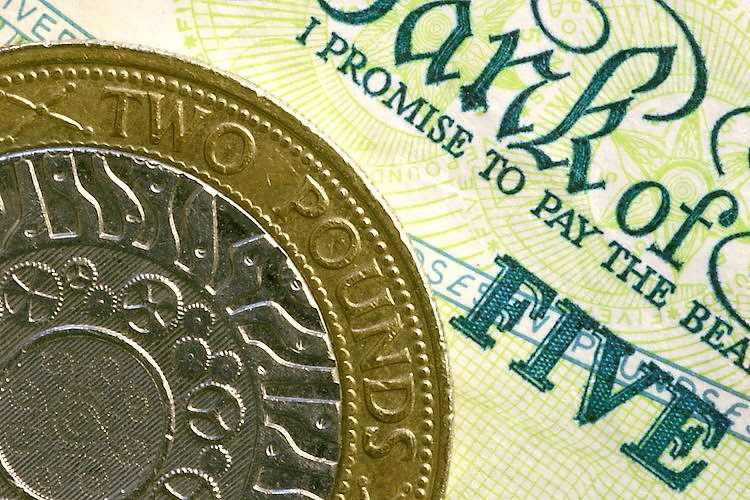Pound Sterling extends recovery as market mood remains cheerful
- Pound Sterling climbs above a two-day high as the appeal for risk-sensitive currencies improves.
- Investors shift focus to UK employment data for July, which will be published on Tuesday.
- BoE Pill and Mann are set to speak on Monday and Tuesday, respectively.

The Pound Sterling (GBP) rebounds strongly as bearish market sentiment eases, while the broader bias is still vulnerable. The GBP/USD pair recovers swiftly ahead of the United Kingdom’s Employment report for July, which will demonstrate current labor market conditions. Investors will keenly focus on wage growth momentum, which has remained a major trigger for keeping inflationary pressure extremely stubborn.
The UK’s labor data release will show how well restrictive monetary tools from the Bank of England (BoE) are performing in a high-inflation environment. Investors will also look for commentaries from BoE policymakers to get cues about how much the current interest rates are close to their peak. Slow wage growth and slim recruitment levels should ease pressure from BoE policymakers.
Daily Digest Market Movers: Pound Sterling recovers further as US Dollar cracks
- Pound Sterling recovers significantly after defending the crucial support of 1.2450 as the appeal for risk-perceived currencies improves.
- The asset rebounds strongly after a fresh three-month low ahead of the UK’s labor market report for July, which will be published on September 12 at 06:00 GMT.
- Per estimates, the quarter ending in July Unemployment Rate is seen rising to 4.3% vs. the previous reading of 4.2%. A higher jobless rate would ease pressure stemming from a tight labor market for Bank of England (BoE) policymakers as labor shortages have remained a major trigger for inflation.
- Three months to July Average Earnings excluding bonuses are seen lower at 7.6% vs. the prior reading of 7.8%. Slower wage growth would be welcomed by BoE policymakers as household demand may cool down ahead.
- Higher wage growth momentum has been a big worry for BoE policymakers. BoE Governor Andrew Bailey warned last week that there has been no let-up in the pace of wage growth.
- UK’s Claimant Count Change for August is seen declining to 17.1K vs. July’s reading of 29K. Lower benefit claims indicate that labor demand remained decent from employers.
- Speeches from BoE policymakers are also due: BoE Economist Huw Pill and BoE member Catherine Mann on Monday and Tuesday, respectively, are set to speak.
- The Pound Sterling could come under pressure if BoE policymakers also cite current interest rates as “sufficiently restrictive” or comment that policy tightening is nearing its end, which was said by the BoE’s Bailey and Swati Dhingra last week.
- Investors hope that an end to interest rate tightening by the BoE is not as far off as previously believed. Andrew Bailey commented: "Many of the indicators are now moving as we would expect them to move and are signaling that the fall in inflation will continue.”
- The UK’s economy is showing signs of broader weakening, a cooling labor market, and slowing consumer spending momentum, which should cause inflationary pressure to yield.
- For September monetary policy, it is widely expected that the BoE will raise interest rates for the 15th consecutive time. An interest-rate hike of 25 basis points (bps) is expected, which would push interest rates to 5.50%.
- The US Dollar Index (DXY) corrected sharply to near 104.60 after sensing exhaustion in the upside momentum near almost a six-month high of 105.00. The broader bias is still bullish due to global growth concerns and the inflation data for August, which will be published in July.
- Any surprise upside in inflation data would force Federal Reserve (Fed) policymakers to keep the doors open for further policy tightening.
- The US Dollar faces pressure on Monday as China’s inflation for August, released on Saturday, rebounded nominally, indicating an easing of deflation risks. On a broader note, the Chinese economy is still vulnerable amid a slowdown in the property sector and retail demand.
Technical Analysis: Pound Sterling aims to recapture 1.2600
The Pound Sterling prints a fresh two-day high, testing territory above the psychological resistance of 1.2500 after discovering buying interest near a three-month low around 1.2450. The Cable attempts to defend the crucial support of the 200-day Exponential Moving Average (EMA), which lands near 1.2490. While the short trend is bearish as the 20 and 50-day EMAs are downward-sloping, momentum oscillators portray strength in the bearish impulse.
<
BoE FAQs
What does the Bank of England do and how does it impact the Pound?
The Bank of England (BoE) decides monetary policy for the United Kingdom. Its primary goal is to achieve ‘price stability’, or a steady inflation rate of 2%. Its tool for achieving this is via the adjustment of base lending rates. The BoE sets the rate at which it lends to commercial banks and banks lend to each other, determining the level of interest rates in the economy overall. This also impacts the value of the Pound Sterling (GBP).
How does the Bank of England’s monetary policy influence Sterling?
When inflation is above the Bank of England’s target it responds by raising interest rates, making it more expensive for people and businesses to access credit. This is positive for the Pound Sterling because higher interest rates make the UK a more attractive place for global investors to park their money. When inflation falls below target, it is a sign economic growth is slowing, and the BoE will consider lowering interest rates to cheapen credit in the hope businesses will borrow to invest in growth-generating projects – a negative for the Pound Sterling.
What is Quantitative Easing (QE) and how does it affect the Pound?
In extreme situations, the Bank of England can enact a policy called Quantitative Easing (QE). QE is the process by which the BoE substantially increases the flow of credit in a stuck financial system. QE is a last resort policy when lowering interest rates will not achieve the necessary result. The process of QE involves the BoE printing money to buy assets – usually government or AAA-rated corporate bonds – from banks and other financial institutions. QE usually results in a weaker Pound Sterling.
What is Quantitative tightening (QT) and how does it affect the Pound Sterling?
Quantitative tightening (QT) is the reverse of QE, enacted when the economy is strengthening and inflation starts rising. Whilst in QE the Bank of England (BoE) purchases government and corporate bonds from financial institutions to encourage them to lend; in QT, the BoE stops buying more bonds, and stops reinvesting the principal maturing on the bonds it already holds. It is usually positive for the Pound Sterling.
Author

Sagar Dua
FXStreet
Sagar Dua is associated with the financial markets from his college days. Along with pursuing post-graduation in Commerce in 2014, he started his markets training with chart analysis.

















